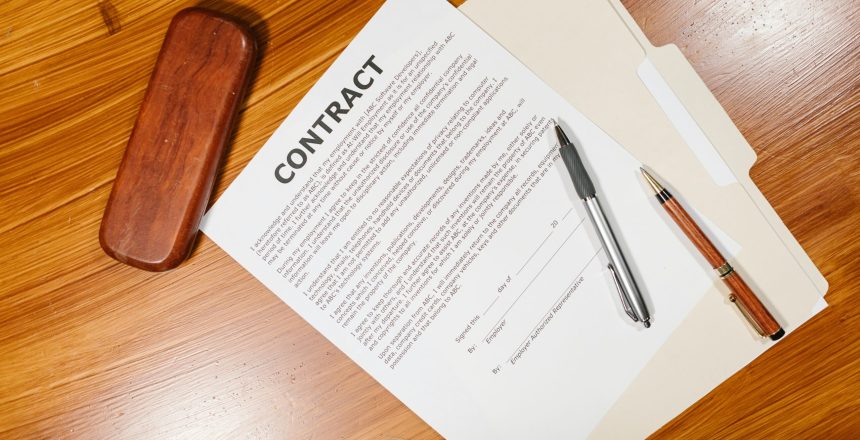Insurance policies of all kinds can be confusing. There is a lot of jargon within the policy language and you might be worried that you will not understand what coverage you really need when you look into vehicle transport insurance. Car transport insurance is an important part of making sure that your car will be taken care of during your move or travel to another location, so it is an insurance policy that you need to understand.
Despite the jargon and some of the other parts of insurance policies that can make them confusing, there are some factors that you can focus on to make choosing the right policy easier. These factors are a big part of self-educating yourself about these kinds of policies and you will be much better off if you know these facts before you start looking for a vehicle transport insurance policy.
If you are ready to learn more about your car transport insurance policy needs, read on!
What Are the Types of Insurance?
There are three basic types of vehicle transport insurance. You will need to know how all of these kinds of insurance work related to your car’s transportation process.
1. Customer Insurance
This is the insurance that you have on your car. You will have to have this policy in place when you ship a car. This is regardless of what other coverages you decide to add during the trip. This is the basic insurance policy that you have in place that protects you when you are driving your car. Additionally, it’ll have an extension within it that helps with replacement costs. This is in case your car is damaged or totaled during the time the vehicle transport company has it.
2. Carrier Insurance
This is the insurance that the carrier has that also covers damage or losses that involve your car. You should make sure that any car shipping company you are working with has this insurance in place. It is a big red flag if they do not and you should never consider working with a company that will not share their insurance information with you before you commit to having them take your car for you to your new location.
3. Broker Insurance
Brokers are middlemen who facilitate contracts between drivers and customers. Yet, they are not the owners of the companies that haul these vehicles. Also, they will not be able to help with any of your auto shipping insurance needs.
You will find that broker insurance is not really their own insurance. Although, they might sell supplemental policies that are provided by a third-party insurance company. This might not apply to your needs during your car’s transport and you should be wary of using a brokerage for your car transport needs or for any supplemental coverages that they might offer you.
What is Cargo Insurance?
This is an additional portion of the insurance coverage that is extended to your car when you use a transport company for your vehicle transport needs. This part of the insurance covers actual losses to your car itself. For many car transport companies, this part of their insurance policy will cover up to $350,000 in damages. This might vary from state to state, but this is a common limit.
It is important to know that this coverage will be split up across all of the vehicles that are on the trailer at the time of an accident. If all eight cars are damaged, you will only get 1/8 of this coverage amount applied to your loss. Many people think that the $350,000 of coverage is extended to each car on the trailer. However, this is not the case.
The liability portion of the policy will not be handled in this way. However, the cargo insurance part of the policy is split between the cars on the trailer when the accident happened. You should always ask how many cars will be hauled on the trailer during your car’s transit. This is to know how much coverage is available for your car in case there’s significant damage or total loss.

What you Need to Know About Car Transport Insurance
Automobile transport insurance is an important part of protecting your vehicle from harm when it is being moved to a new location and you are not driving it there. It is important to be sure that you have the right coverage for your unique needs before your car gets on the transport and heads down the road.
The insurance policy that the transport company holds will cover damages to your car that occur when it is being unloaded, then it is in transit, and when it is being loaded. If there was damage to your car already like a leaking window or other issues, the transport company is not responsible for damage that happens related to these issues with your car that existed when the car was put on the transport.
Your auto insurance policy will cover losses as well. However, wthere may be limitations since you were not driving the car at the time. You can call your insurance company and see what they have to say about covering losses that occur when your car is being transported to a new location and you are not driving it. This helps you plan for any extensions of coverage you want to get or supplemental coverages that might be needed.
Some other items that you should consider when you are thinking about insurance coverage for your auto transport needs:
1. Fraud
While not common, this can be an issue. You should always make sure that you do not pick an auto transport company that does not seem willing to provide you with all of the information that you are asking for.
2. Fake Companies
Fraudulent transport companies do exist and they can show you falsified documentation that makes it seem like they are a real transport company when they are not. They will act like they are going to transport your car to the location that you have requested but then steal it, never to be heard from again.
3. Sloppy Companies with Inadequate Car Shipping Insurance
While not fraud, these companies will just do a bad job if you hire them. You will pay too much for sloppy service and they might not have the insurance that they should cover and protect your vehicle during transit. Make sure that you do not work with these companies if you think that they are not going to hold up their end of the bargain properly.
4. Issues With Brokers
Brokers are not insurance companies and they are not the owners of the truck that is transporting your vehicle. They might sell policies on behalf of insurance companies or facilitate the transport that you have booked. However, they are not the actual company driving your vehicle to your new home.
Always remember this if you use a broker for your car shipping insurance needs. You will always have to run claims through the actual insurance company that holds the policy and you will need to deal with the actual car transport company that is hauling your car for any concerns that you might have.
5. Check the Car Shipping Insurance Details in Your Paperwork
Even if you have had a really nice experience with a car transport company up to the point where you sign documents, you should never assume that everything is in order on their side. Look through all of your documents carefully before you sign anything. You do not want to have signed a contract with a company that will not take care of your needs or that was not honest about their insurance coverage or the details of the transit that you have booked.
6. Not All Losses Will be Covered
Just like in the instance that you have driven your car off the road through your own personal error such as texting or some other form of driving distraction, there will be instances where your vehicle shipping insurance will not cover a loss. “Acts of God” like weather events or earthquakes will not be covered by most insurance policies.
You will need to ask about any of these instances that could come up before you sign documentation for the policy in question or decide to work with a car transport company. Knowing what kinds of situations are not covered by insurance can be a big deciding point for which car transport company you work with.

How Does Vehicle Transport Insurance Work?
In the case that your car is damaged during transit, you will need to file a claim. The kind of insurance that is protecting your car during the transport will affect how you submit this claim.
1. Carrier Insurance
Carrier responsibility is a bit limited in some ways. Their policy will cover instances where there is an accident based on the value of your car at the time that it was put on the trailer. Acts of God will not be covered such as weather events or things like earthquakes. Other items that will not be covered are terrorism events or accidents that occur due to civil unrest.
In all cases that your car is damaged while with a carrier, you should be able to reach out to the carrier and start a claim. The coverage for most carriers is around $350,000 of cargo insurance and $1,000,000 of liability insurance. The carrier and their insurance entity should handle your claim, but your own personal auto policy might have to be involved as well in some instances.
2. Broker Insurance
In the case that a broker has extended insurance for your car transport needs, you will have a different process than when dealing directly with the carrier for your claim. Brokers are supposed to make sure that the carriers that they work with have proper insurance, but this may not always be the case.
As stated above, carriers will have around $350,000 of coverage for losses to the car itself. However, a broker might also add some supplemental coverage in rare instances. This will almost always be secondary insurance to the carrier’s insurance. Besides, you need to be aware that the carrier’s policy is the primary coverage for the accident and losses associated with it.
You can see that broker insurance might be both beneficial and not helpful to you if the carrier that you are transporting your vehicle with is not properly insured. Trusting a broker to vet carriers can be a time-saver. Nevertheless, you might also find in some instances, that the insurance part of their vetting process was not done correctly.
How to Protect yourself Under This Insurance
Using transport insurance of both kinds should not be a struggle. If you are working with a proper insurance company, you should be able to file a claim if there is an accident. Also, you should not have to struggle to find out which insurance company they are working with for their needs.
The biggest key to protecting your vehicle with this kind of coverage is knowing what the policy language actually says. If you aren’t sure what the policy will cover, you can ask to see the full language of the policy. Also, take it to your own auto insurance company for a once-over. If you are working with a broker, you’ll be able to ask them for some advice in some instances too.
The relationship between brokers and carriers can be complex and you will need to ask all the right questions about the way that their insurance policies are handled when you work with a broker instead of booking directly with the carrier.
Always remember that you will not have additional coverage per se with a broker in the mix. Their coverage is only there to secure your vehicle in the event of a loss when a carrier does not have the right insurance or their insurance has expired.
Keep in mind that you have your own auto insurance in place and you can open a claim with that company to help you to navigate the process of getting the compensation and claims payout that is needed to cover your losses. The insurance process related to car transport insurance is complex. Nevertheless, you should never hesitate to get help from your own auto insurance company if need be.
Some Ways to Protect Yourself From Auto Insurance Issues

There are some ways you can make sure you don’t have issues with your car transport company’s insurance. These are steps that you can take any time that you are thinking of having your car transported for you.
1. Ask For Proof of Car Transport Insurance
You should never skip this step when you are working with a vehicle transport company. Companies who do this kind of work should be able to provide a valid certificate that states what their coverage is and which company it is through. You will need this information if you need to file a claim. Thus, having it on hand takes care of two birds with one stone.
2. Make Sure Things Are in Writing
Handshake deals and verbal agreements are never a good idea. You should always make sure that the insurance information that you were quoted is listed and detailed in your contract. Do not sign anything that does not include insurance information.
3. Speak to Your Auto Insurance Company
You should always ask your auto insurance company about their coverage for your vehicle when it is being transported. Furthermore, ask questions about what gaps in coverage might be present with the coverage the auto insurance company offers.
4. Pre-Possession Inspection
This is the process that the car transport company does before they take over control of your vehicle. They will look at any existing damage to your vehicle and note it in their documentation. You can also take pictures of your vehicle before the company takes it from you. This is so that you can prove the condition of the vehicle before it was transported if need be.
5. Bill of Lading
This is the condition report you’re given when you get your car at the end of the transport process. You should make sure that you look your car over thoroughly before you sign off on this bill of lading. Any damage to the engine, undercarriage, interior, paint or other parts of your car that was not present when you handed your car off to the transport company will need to be addressed before you sign anything. You will include the damage that you see on the bill of lading. Also, you can call the transport carrier or broker to determine how you can get reimbursed for these damages.
Be careful not to sign off on a bill of lading if you aren’t sure that your vehicle is in the condition that you handed it over to the company. You will not be able to seek reimbursement after a signed bill of lading that does not mention damages.
Car Transport Insurance is an Important Part of Your Contract

If you want to be sure that you are getting a good deal for your vehicle transport needs, part of your consideration should always be whether or not the company is offering the right amount of car transport insurance to keep your car safe. It does not matter how great the overall cost of your transport will be if your car suffers major damage. Also, there is no insurance on hand to fix or replace it.
Always make sure that you look into the vehicle transport insurance process that your automobile transport carrier of choice is offering. You should never assume that there will be enough coverage for your needs. This is particularly true if you are shipping a rare, exotic, or very large vehicle. You should always make sure that there will be enough insurance in place during transport. This is to protect you in the event of a loss, big or small.






